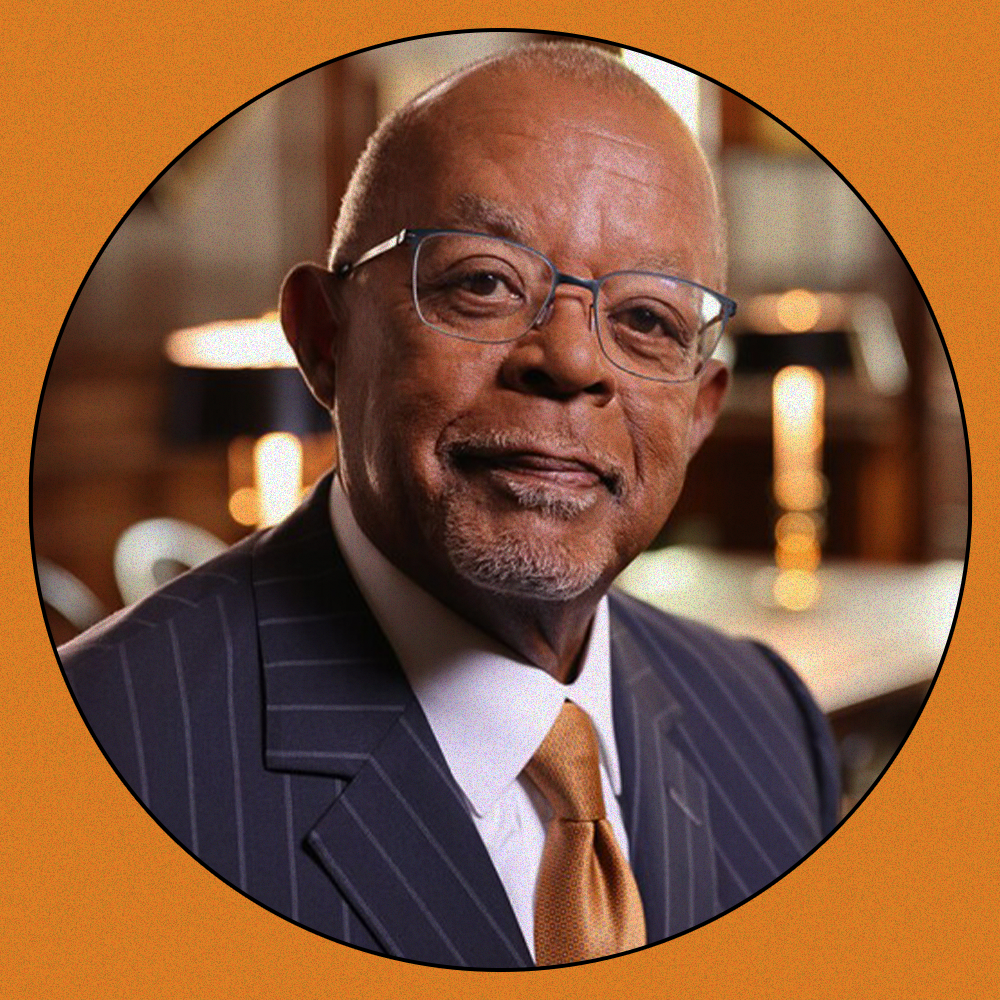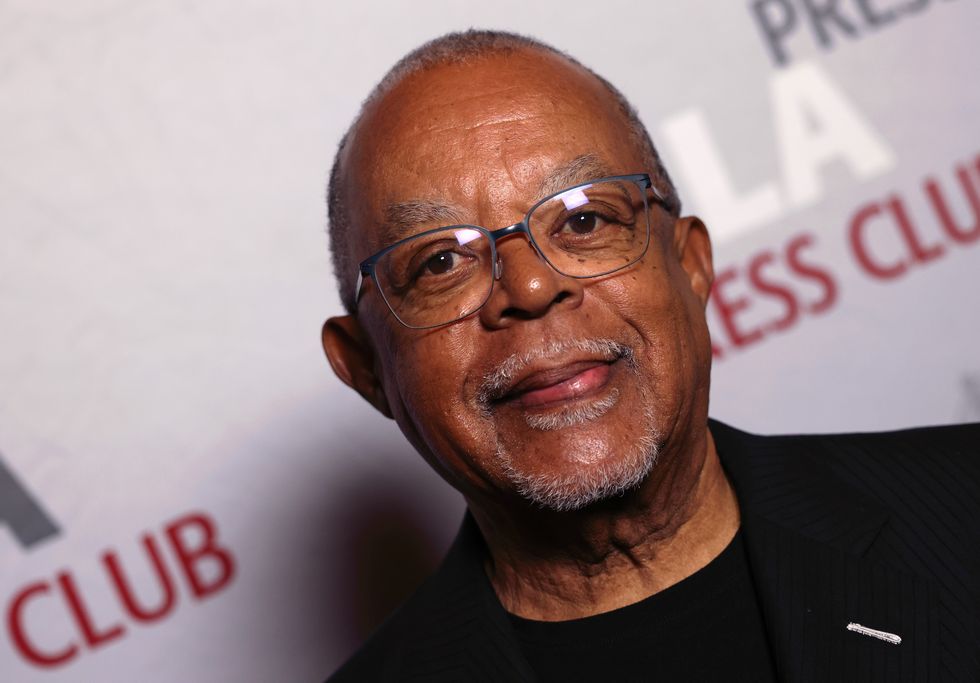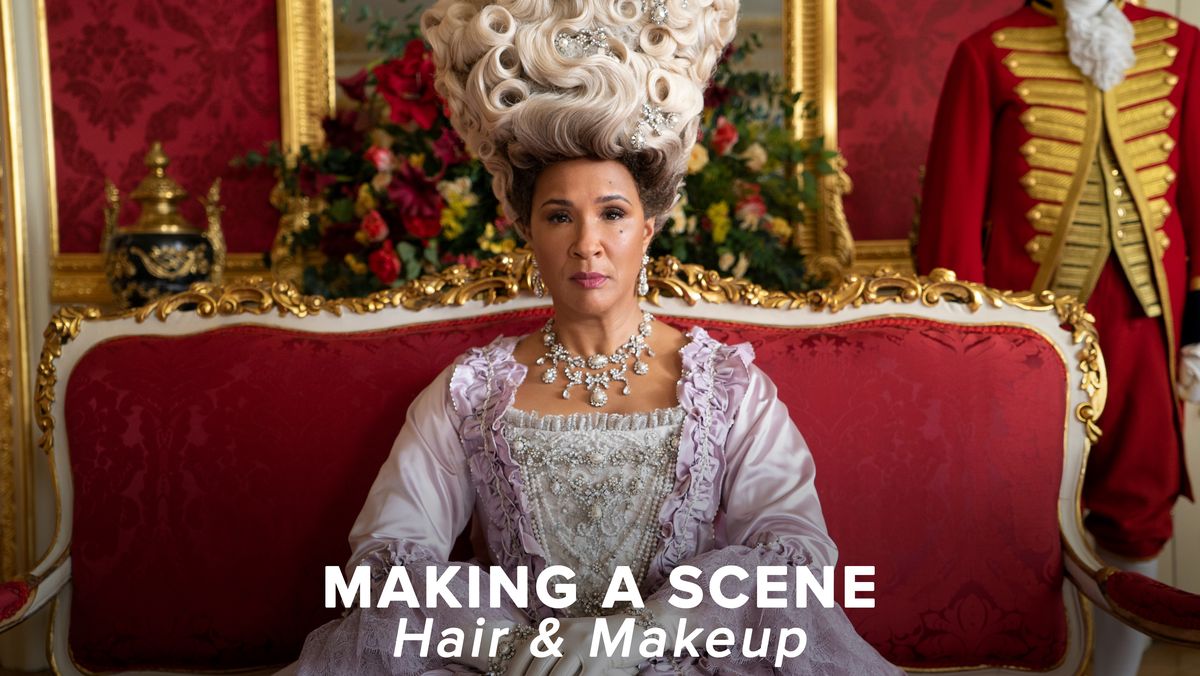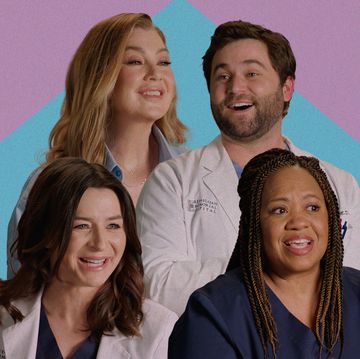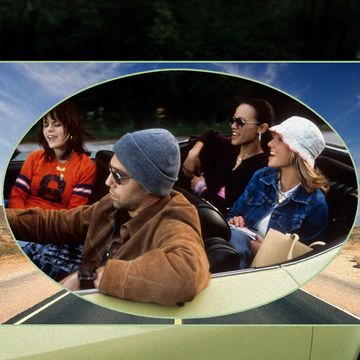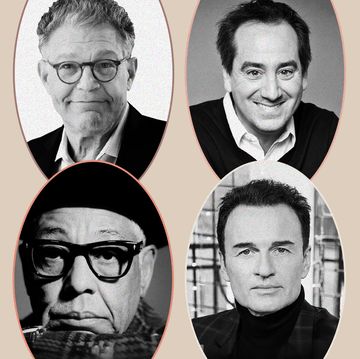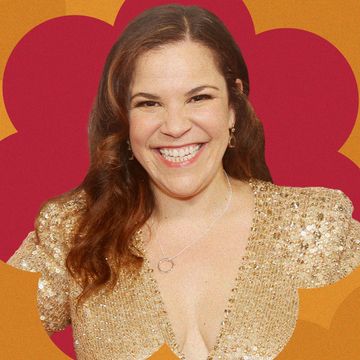The PBS hit Finding Your Roots inspired me, like so many viewers, to start climbing my own family tree, so I feel incredibly fortunate that Zooming with the series’ host, Dr. Henry Louis Gates Jr., is very much like being welcomed into his guest’s seat. I immediately tell the warm, affable academic that I’m far more interested in a conversation about how he found his roots than an interview about the celebrity family-tree scrolls he’s about to unfurl this season — including the family trees of Alanis Morissette, Tracy Morgan, and LeVar Burton, by the way. But those we can soon watch.
It quickly becomes clear that the show was a destined passion project for Gates: A BA in history from Yale and a Ph.D. in English literature from Cambridge indicate a yen for storytelling and weaving historical events into narratives, just as he does on the show. A literary and African American studies professor at Yale, Cornell, Duke, and Harvard (he’s currently at Harvard), Gates calls the idea for Finding Your Roots a “gift from God” he got in the middle of one random night. But all roads walked previously were well lit down this path.
As a child, Gates was a preternatural history buff. “One of the pleasures regenerated by the research that we do for each of the guests on Finding Your Roots is somehow speaking to the joy and the pleasure I received learning about world history for the first time when I was 10 years old,” Gates recalls. “Why the school system in the hills of eastern West Virginia would have a fifth-grade world-history class, I have no idea. But they did!”
A year before this class, just after the passing of his grandfather, Gates would be inspired to make his very first family tree. He can even recall the date: July 3, 1960. After the funeral, his father brought him and his brother back to their house and retrieved his grandfather’s scrapbooks from an armoire. “My father is turning pages of bank ledgers, furiously looking for something,” he says. “We thought it might be money but soon realized they were really scrapbooks. He was fascinated with death, so there were newspaper clippings of airplane crashes, railroad crashes, and also the daily war dead during World War II. But buried within these pages of death were articles about the first Negro judge elected in New York in 1942, articles about Adam Clayton Powell, and things like that.”
After poring through six of these bank ledgers, his father found what he was looking for. Gates says, “He found an obituary for Jane Gates dated January 6th, 1888, in Cumberland, Maryland, an ‘estimable colored.’ He showed us his picture of her — there’s only one copy of it, and it’s framed upstairs in what I call my family history room — and he said, ‘This is the oldest Gates we’ve ever been able to trace. I never want you to forget her name, and I never want you to forget her face.’”
This inspired Gates to begin his first foray into genealogy in earnest. “I always had my own desk and my own bookcase, in my own bedroom. There was a red Webster dictionary that sat on my desk, so the last thing I did before I went to bed was look up the word ‘estimable’ because I didn’t know what it meant. I thought: Wow, if that funny-looking colored lady is ‘estimable,’ I must be ‘estimable’ too. The TV was always on at my house, like a Yule log. That night, I interviewed my mother and father about what only years later I would learn is called your genealogy, or your family tree, because I wanted to figure out how I was descended from this woman who was a slave.”
There were some clues about Gates’ heritage. “My father looked like a white man. He was often mistaken for being Jewish. My grandfather was so white, we called him Casper behind his back because he looked like a ghost. I wanted to know how somebody with my particular phenotype — my color, my features, my texture, and my hair — could be descended from a man who could have passed for white,” he explains. After some digging, he got pretty far. “I was able to get back to my great-great-grandmother. Her paramour, the man who fathered her five children, was a mystery she took to her grave. She only told her five children, including my great-grandfather, that they all had the same father and that he was white.” On his mother’s side, he impressively was able to go back to his great-great-grandmother and his great-great-grandfather.
Gates saw how deeply genealogy resonated with others in 1992 during an impromptu visit to the FamilySearch Library in Salt Lake City while traveling to give a lecture. Says Gates: “It was packed wall-to-wall, mostly women, mostly older women. I was just astonished. There were white women, Christian women, Mormon women, Jewish women, Asian women, and Black women like, ‘I found my grandmother!’ They’re all crying and hugging.”
Though Finding Your Roots is about to premiere its 10th season, the show has been through three prior iterations with Gates at the helm. One iteration was Faces of America in 2010, and the others were African American Lives and African American Lives 2, featuring the genealogy of such legends as Oprah Winfrey, Quincy Jones, and Chris Tucker. “It was designed to do Alex Haley in a test tube,” Gates says with a smile, referring to Roots, Haley’s smash-hit 1977 miniseries about Black slavery, which Gates was obsessed with.
“The whole conceit was to take Oprah Winfrey and all seven other guests and trace their ancestry, following the paper trail back to the abyss of slavery. When the paper trail ran out, I would do the DNA and pull an ethnic group out of the hat. I wanted to give them their Kunta Kinte moment, and that’s what we did.” To pull it off, Gates had to raise $6 million by himself. Gates confesses to having long nursed what he calls a serious case of Roots envy. “I hated Alex Haley because I wanted to be Alex Haley,” he laughs. Eventually, he had a full-circle moment: He was eventually introduced to Haley through his friend Quincy Jones, whose daughter Rashida was Gates’ student at Harvard. Jones scored the music for Roots.
In 2000, Gates was approached by Rick Kittles, a Black geneticist at Howard University, who offered to “scientifically do what Alex Haley did” and sought 2,000 Black men as volunteers. Intrigued, Gates flew him to Boston, where Kittles extracted Gates’ blood in his living room. “At the time, he’s only tracing your mitochondrial DNA, which you inherit from your mother. It’s an identical genetic fingerprint, and it never changes. It’s a great way to trace where your mother’s mother’s mother’s mother came from,” Gates explains, describing how geneticists use mitochondrial DNA from women and Y-DNA from men to trace ancestry.
He then imparts this insight into African American genealogy: “The average African American is 24 percent white. The average African American thinks she or he is 24 percent Native American, but they’re not — the average African American is 0.8 percent Native American. People from the islands, like my wife, who is Cuban, have a high Native American percentage. But Black Americans have a tiny Native American percentage because the average African American slave never saw a Native American, so you can’t mate.” Six months came and went before Gates called Kittles to get his anomalous results — hence the delay. Kittles told him he was Nubian, which Gates wasn’t quite ready to believe: “Black Americans want to be descended from the ancient kingdom of Nubia because they’re the Black pharaohs. Nubia ran from Khartoum to the Aswan Dam, and no slaves came from that far east. None. Zero.”
Gates’ own patrilineal ancestry confirmed that the woman in that picture, Jane Gates, had a lover of Irish descent: “I am in the 5 percent or so of African Americans who descend from a white woman who slept with a Black man back in colonial American times. My mitochondrial DNA does not trace back to Africa. It traces to Europe, to England, to the United Kingdom, just like my Y-DNA traces back to Ireland. Isn’t that fascinating?” Gates reveals he is 49 percent sub-Saharan African, 49 percent European, and 2 percent Native American. Jokingly, he shares: “My family brings out these pictures of Granny on both sides, and they say, ‘Look at these high cheekbones! Look at that straight black hair! Stop embarrassing our family by telling lies on your TV show!”
More than 4 million viewers watch Finding Your Roots each week, says Gates, who rarely declines a selfie request from fans. Regardless of where we come from, the science behind our origins proves we’re more alike than different. Says Gates: “At a time when our society is so divided, it [the show] brings people together and reminds people, as Martin Luther King said, America’s not only a nation of immigrants, we are a nation of exiles. My African ancestors didn’t migrate willingly, but they’re still immigrants. Even our Native American sisters and brothers came here from someplace else 15,000 years ago. No matter how different we are phenotypically, or our religious traditions, or our geographic origins, we are 99.99 percent identical at the level of the genome.”
Vivian Manning-Schaffel is a multifaceted storyteller whose work has been featured in The Cut, NBC News Better, Time Out New York, Medium, and The Week. Follow her on Twitter @soapboxdirty.
Get Shondaland directly in your inbox: SUBSCRIBE TODAY
